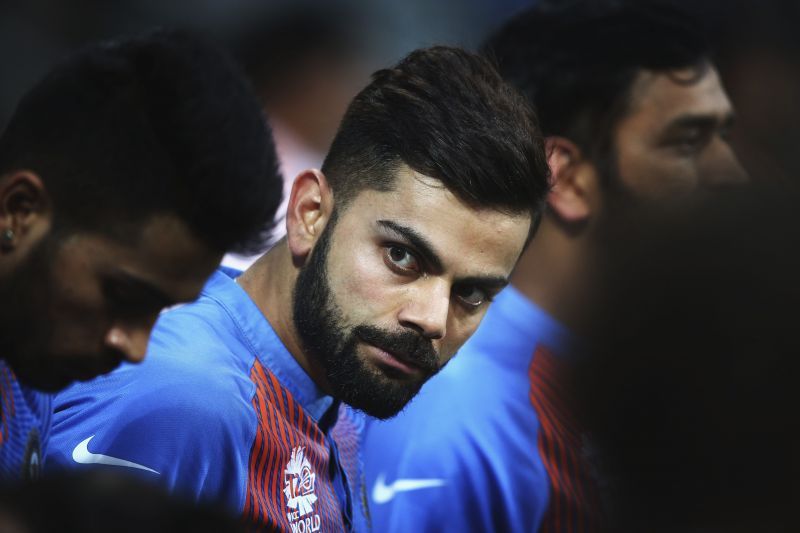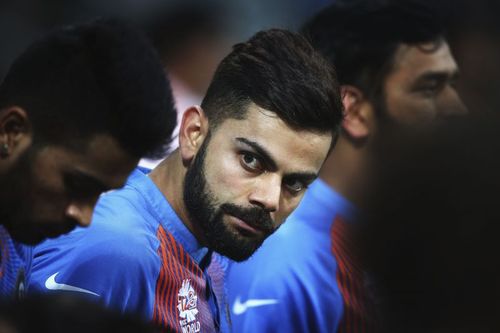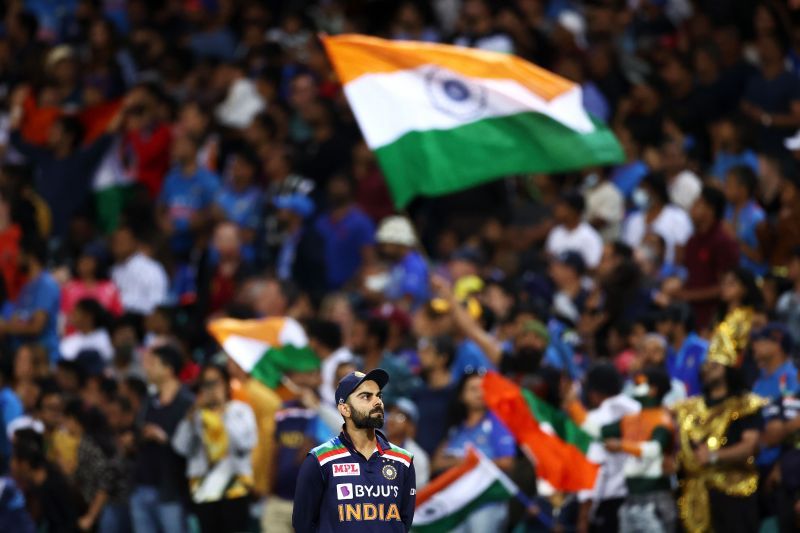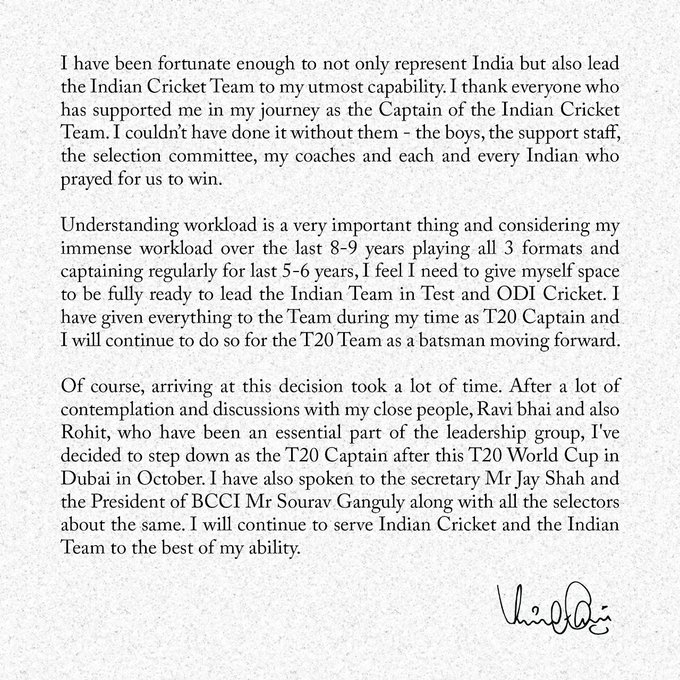
Virat Kohli's T20I captaincy legacy waiting to be seized

Under normal circumstances, what would Virat Kohli or for that matter, any other cricketer do in quarantine, just days after a grueling tour to the United Kingdom? Re-energize, refresh, contemplate what transpired over the past month or perhaps look forward to the next event, right?
Instead, Kohli has sent the entire cricketing community into a tailspin by announcing that he would be stepping down as India’s T20I skipper post the T20 World Cup – a decision that didn’t entirely come out of the blue but also one that none expected to happen so close to the IPL and the T20 World Cup.
To put things into context, there were several reports till a week ago that indicated Rohit Sharma would be taking over as India’s white-ball captain. BCCI officials, though, put paid to those rumours by suggesting that Kohli would remain at the helm as long as India kept performing to the standards expected of them.
From that standpoint, it seems a little anti-climactic that Kohli has opted to defy those beliefs a few moons later. That he did so days after India named their 15-man squad for the T20 World Cup and just nights before the Royal Challengers Bangalore are set to resume their maiden IPL title charge, highlights that Kohli isn’t dwelling on the past.
Instead, he has, courtesy of his propensity to always look at a glass as half-full, shown that the upcoming T20 World Cup is now a massive opportunity to cement his status as one of the greatest captains India have ever produced.
Virat Kohli has an exceptional record as T20I captain
Over the years, there can be no denying that Kohli has mustered some impressive numbers in bilateral rubbers. When talking about the shortest format specifically, he has a win percentage of 65.11, having won 27 of 45 fixtures he has captained in. In addition, he also has T20I series triumphs in Australia, England, New Zealand and South Africa to bask in.
Yet, there has always remained a question mark over his captaincy style, which might seem premature at first or if only looked at through the statistical lens but is certainly warranted, considering the drawbacks to his style of leadership.
Again, a debate on what Kohli brings to the fore and the demerits his captaincy poses is better left for another day because, well, it will take that long. But one element that has not been up for discussion is the fact that the current RCB skipper, for all his exceptional captaincy numbers, has found ways to flounder on the big occasions.
During the 2017 ICC Champions Trophy, India wilted against Pakistan (of all rivals), whereas their unraveling at Old Trafford against New Zealand in 2019 was just as bad. A couple of years later, the Kiwis inflicted further misery when they pounced on India’s tentativeness and ensured that Kohli remained without an ICC trophy (as captain).
For those attuned to picking up patterns, it would be easy to point out that India succumb to pressure every two years, hinting that they are pretty flawless between those capitulations. There is another trend, though, and that is perhaps what Kohli might want to correct at the T20 World Cup because, well, it is the only format in which he hasn’t captained India in an ICC event.

However, for that to happen, it is imperative that Kohli puts his best foot forward – something that regularly materializes in bilateral series but goes amiss when the stakes are amped up at ICC tournaments.
For starters, he might do well to be a little less reactive and trigger-happy with team selections. Quite often, he has fiddled around with his team combinations and his tactics. While that has helped him immensely in Test cricket – a format that requires a bit of tinkering to break the metronome, it has proved detrimental in T20 cricket, where the format is so frenetic that a calm head becomes vital.
Additionally, India have also been accused of being too cautious in T20Is – something that was persistent during the MS Dhoni era as well. Though Kohli vocally preached an aggressive approach during the home series against England, it would take a sliver more to convince his troops to deploy the same at a T20 World Cup. Not just because oppositions will be better prepared, but also because the fear of failure would increase exponentially.
Thus, it wouldn’t be a stretch to suggest that an asterisk would always be attached to Kohli’s T20I captaincy record, unless he stands atop the T20 World Cup perch come November.
What the decision to announce his stepping down has done, though, is that it has allowed people to take in a deep breath during the IPL, make sense of what Kohli has actually done, take in another deep breath and prepare for the post-Kohli era and then pool in all efforts to support the Indian captain in his last T20I dance as skipper.
When viewed from that perspective, the timing of this decision has perhaps come at the most apt juncture. Not only because it has given the Indian faithful a time to process the decision (still might not be enough) but also because it has given Kohli a chance to concentrate on a sole objective and not worry about what might happen after the T20 World Cup. A “nothing to lose” attitude, according to linguists.
Furthermore, in the current COVID-19 times, it might not be far-fetched to suggest that Kohli might even be contemplating taking breaks during India’s T20I calendar because he will remain an ever-present in the other two formats. And, that particular task of replacing Kohli – the player will be a lot more arduous than replacing Kohli – the captain, make no mistake about it.
As far as his T20I captaincy legacy is concerned, Kohli has certainly left the door ajar for it to be seized. A triumph at the T20 World Cup and suddenly everything might be forgotten and this decision might seem a masterstroke – a masterstroke that didn’t just ease the pressure but also handed Rohit Sharma (his potential successor) the perfect platform to build upon.
If that were not to the case, though, it could be a simple case of Kohli understanding that someone less wounded by ICC tournament defeats was better positioned to take over. And that it may just be a matter of luck, as Kohli’s staunchest supporters/critics would say.
Nevertheless, it seems pretty clear that Kohli has had time to think this through and that this may not be the worst thing to happen to Indian cricket, after all. But it certainly is some way to spend your quarantine, isn’t it?
Also Read: IPL 2021: Predicting where each time will finish post the league stages
